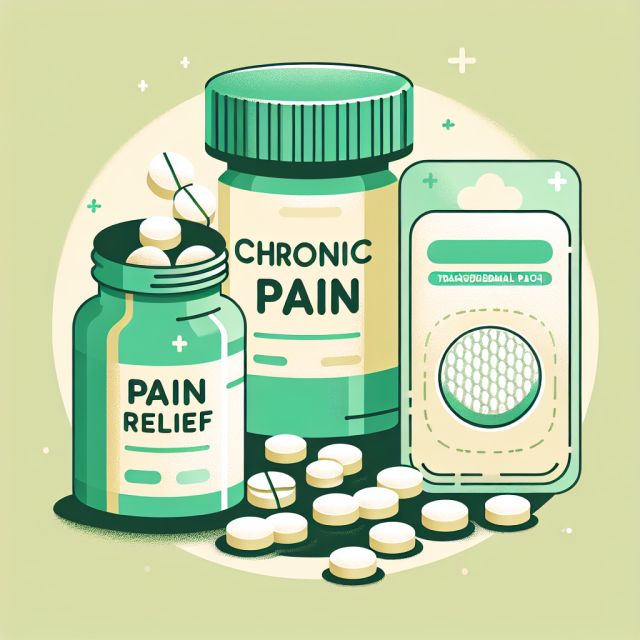
Table of Contents
Introduction
Living with chronic pain is like carrying an invisible burden that never lets up. It affects every aspect of your life, from work to sleep, and finding the right medication for chronic pain can feel overwhelming. Understanding what options are available and how they work can make a world of difference in managing your pain effectively.
1. Opioid Pain Relievers
Opioids like OxyContin, Percocet, and Vicodin are some of the most well-known medications for chronic pain. They work by binding to receptors in the brain and spinal cord, reducing the perception of pain. While effective, opioids come with a significant risk of addiction and other side effects.
When are they used? Opioids are generally prescribed for severe pain that doesn’t respond to other treatments, such as pain from cancer or major surgery. But they should always be taken under strict medical supervision.
2. Acetaminophen: The Trusted Basic
Acetaminophen, often known by the brand name Tylenol, is a staple in many households. It’s commonly used for mild to moderate pain, like headaches or backaches. It doesn’t cause stomach issues like some other pain relievers, making it a preferred choice for those with sensitive stomachs.
Precaution: Be cautious about the dosage. High doses or long-term use can harm the liver, so always read the label and consult your doctor if needed.
Related link: HealingWell Community for Pain Support
3. NSAIDs: More Than Just Pain Relief
Nonsteroidal anti-inflammatory drugs (NSAIDs), like ibuprofen (Advil, Motrin) and naproxen (Aleve), are popular for managing pain and inflammation. They work by reducing chemicals in the body that cause inflammation and pain. For those dealing with arthritis or muscle pain, NSAIDs can be lifesavers.
Risks: Long-term use can lead to stomach ulcers or kidney problems. Always take them with food and follow your doctor’s guidelines.
4. Anticonvulsants for Nerve Pain
Anticonvulsants like Gabapentin (Neurontin) and Pregabalin (Lyrica) were initially developed to treat epilepsy but have proven effective for nerve pain. They work by calming overactive nerves, making them particularly useful for conditions like fibromyalgia or diabetic neuropathy.
How they help: If you’re experiencing shooting, burning, or tingling pain, these medications might be worth exploring.
5. Antidepressants and Pain Relief
It might surprise you, but certain antidepressants can relieve chronic pain. Medications like Amitriptyline and Duloxetine (Cymbalta) work on brain chemicals that influence pain perception. They are especially helpful for nerve-related pain and conditions like fibromyalgia.
Bonus: They also improve sleep quality, which is often a problem for people living with chronic pain.
6. Topical Treatments
Topical treatments, such as lidocaine patches or capsaicin cream, provide targeted relief for specific pain areas. They are applied directly to the skin, making them ideal for muscle aches or joint pain.
Why they’re great: Topical treatments have fewer side effects compared to oral medications, making them a safer option for long-term use.
7. Muscle Relaxants
Muscle relaxants like Cyclobenzaprine (Flexeril) or Baclofen are used to relieve muscle spasms. These medications work by relaxing tight muscles and reducing pain. They’re often used for short-term pain relief in conditions like low back pain or neck strain.
Caution: These drugs can cause drowsiness, so avoid driving or operating heavy machinery while taking them.
The Importance of Monitoring Medications
Taking medication for chronic pain requires regular check-ins with your healthcare provider. Pain relief comes with responsibilities, such as managing side effects and avoiding interactions with other medications. Keeping an open dialogue with your doctor ensures that your treatment is safe and effective.
Related link: HealingWell Health Resources
Alternative Pain Management Options
While medication can be effective, some people find relief with alternative therapies like acupuncture, physical therapy, or mind-body techniques like meditation. These approaches can complement your medication regimen and provide holistic benefits.
External link: Mayo Clinic on Pain Management Alternatives
Conclusion
Finding the right medication for chronic pain is a journey, and there’s no one-size-fits-all solution. From opioids to NSAIDs and alternative therapies, options are available. Talk to your doctor about what works best for you, and don’t give up hope. Relief is possible, and with the right strategy, you can live a more comfortable life.
FAQs
1. What are the safest over-the-counter medications for chronic pain?
Acetaminophen and NSAIDs are common options, but always consult your doctor about the best choice for you.
2. Can I get addicted to opioids for chronic pain management?
Yes, opioids have a high potential for addiction. It’s essential to use them only under strict medical supervision.
3. How do antidepressants help with chronic pain?
Antidepressants can change the way your brain perceives pain, making them effective for nerve-related conditions like fibromyalgia.
4. Are topical treatments effective for severe pain?
Topical treatments work best for localized, mild to moderate pain. For severe pain, they may not provide enough relief on their own.
5. Can I combine medication with alternative therapies?
Yes, many people find that combining medication with therapies like acupuncture or physical therapy provides better overall relief.





